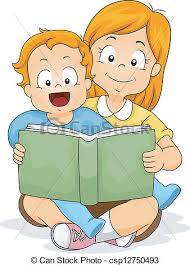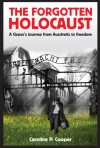Currrent research theory suggests that
homework is not necessary. I’m not here to debate the pro’s and con’s of
homework, (some may say that it depends entirely upon the age of the
children and the stage of schooling they are at.) Suffice to say, if
your kids are in Primary school, no matter what your school’s current
homework policy happens to be, I believe all children should at least
read.
Below are my 10 awesome reasons why I believe all children (no matter
what their age) should have the opportunity to read at home every day.1.Imaginations grow and expand as books take children to magical far away lands with intriguing characters and unusual creatures.
2.Reading inspires creativity to think and invent. It is with stories children are inspired to dream and it is those dreamers who grow up to become the inventers of our world and our future.
3.Children can explore the world around them without leaving the safety of their bedroom. They can learn all about geography, flora and fauna, all things great and small.
4. Vocabulary is increased. The more a child reads, the more new words they discover. Comprehension is learnt in context and gradually as the new vocabulary is read more often it becomes part of every day life and speech.
5. Improved spelling.
Repetition is a secret to success and as such, the more often a child
reads, the more often they see the same words repeatedly in written
form, again in context rather than isolation giving more meaning to each
word. This makes it more likely that these words will become embedded
in the memory and the child will be able to “see” the word when they are
required to spell it.
6. Reading opens up a whole world of knowledge. Once
a child learns to read, they can choose to read anything enabling them
to learn about whatever their heart desires. It helps to stimulate the brain so that the child can grow and be educated to become whatever they choose to be when they become an adult.7. Reading helps to develop empathy for other people through viewing the world through the eyes of many different colourful characters. Giving children opportunities to understand how someone else may feel in situations that they may or may not be familiar with.
8. Life’s lessons are taught through many children’s books as they so often have a worthwhile moral to the story. This also opens up opportunities for family discussions and debates bringing the family closer together as they unite around a topic.
9. The more a child reads, the better they get at it. Like anything else in life, whether that is piano lessons or kicking a ball, we all know the old adage that “practice makes perfect.“
10. Last, but by no means least, reading together, sharing a book with someone you love, ( a parent, grandparent, sibling or friend) brings people together to make special moments. It allows time for laughter, cuddles and hugs. It builds relationships and creates strong bonds that form ever lasting wonderful memories.
So whatever happens in your house this
year during the busy school terms to come, whether there is after school
sport practice, music lessons, or swimming training, (not to mention
the usual household chores,) please take the time to read with your
children every day. Even if it is only 20 minutes a day, you will not
only be instilling a great life long habbit, you will also be giving
them a love of learning and reading that
they will both love you and thank you for one day.


